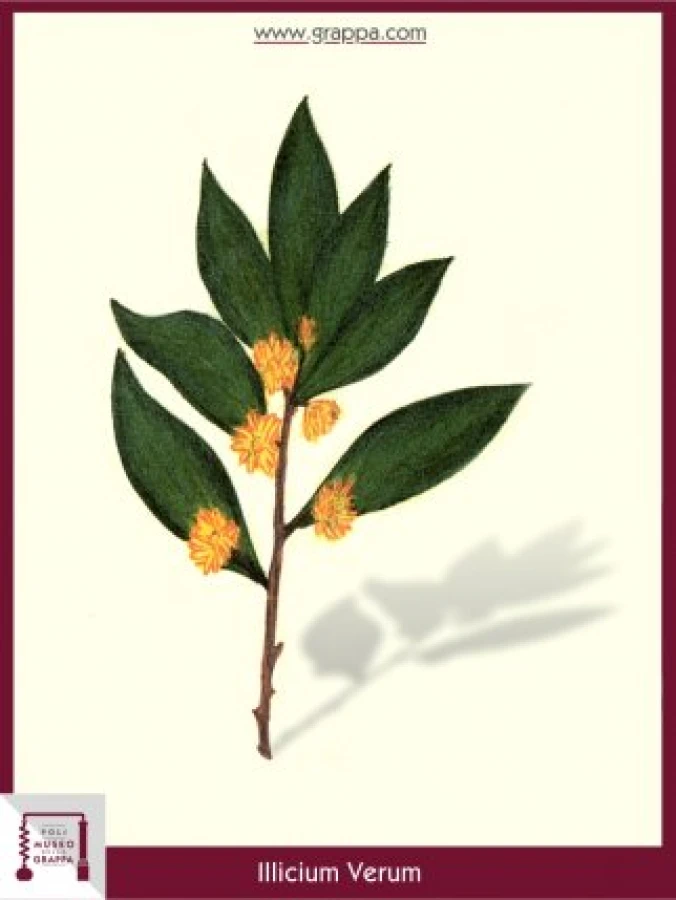A seductive liqueur
Star anise, Chinese star anise, Badiam
A seductive liqueur
Plant:
Star anise, Chinese star anise, Badiam
Plant Part:
fruit
Plant Properties:
aromatic, digestive, relieving flatulence, expectorant, stimulating, stomachic expectorant, eupeptic, nerve-strengthening, balsamic, corrective, antispasmodic, spasmolytic, diaphoretic, stimulating for milk , antiasthmatic, sweat-reducing
Description:
When Linnaeus classified the Star Anise from China, he called it micium, which is derived from the Latin word "illicere" and can be translated as "seduce". This description of Linnaeus had the intention to emphasize the inviting fragrance and aroma of its seeds.
The seeds of Star Anise from Asia and America were indeed the subject of extensive trade and cultivation, especially in Japan and Indonesia, as they were described in all pharmacopoeia in the world as an essential component in the production of medicinal products.
The digestive, stomach-enhancing and antispasmodic properties of the anise are therefore widely known, and the effect of promoting milk secretion in nursing mothers, which is of no less importance. All this in virtue of its numerous constituents, among which the anethol is especially to be mentioned because of its essential oil.
The flavor of the star anise is also used in the production of certain spice liqueurs, such as the anisette or as a flavor enhancer of the absinthe.
It makes sense at this point to propose the preparation of a Grappa of star anise.
Ingredients:
- 5-6 seeds of star anise
- 1 liter of Grappa
- sugar at pleasure
Preparation:
5-6 seeds of the star anise are placed for one month in a liter of Grappa and left to age for 2 months to obtain a dark yellow liqueur with a penetrating fragrance and a strong aromatic flavor which becomes "more sweet" by the addition of the desired amount of sugar.


